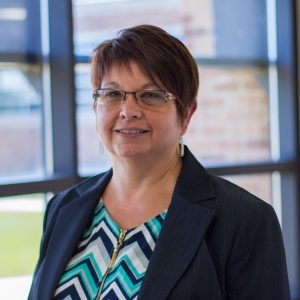
Are you wondering if you can become an OT with a degree in another field?
Can I become an OT with a degree in another field?
If you have a bachelor’s degree in a different field but want to become an occupational therapist, you have options. In fact, your diverse educational background is an asset. Concordia University Wisconsin’s Master of Science in Occupational Therapy offers a post-baccalaureate program geared for individuals whose bachelor’s isn’t related to occupational therapy.
Concordia’s Post-Baccalaureate Track for the M.S. in Occupational Therapy

So, the answer is yes, you absolutely can become an OT with a degree in another field. Program Director Dr. Carrie Bath-Scheel states: “We can take just about any bachelor’s degree. We often see applicants whose degrees are in business, psychology, physiology, as well as other areas. We see plenty of liberal arts degrees opt for a career in occupational therapy.”
When it comes to the student’s success in the program, Dr. Bath-Scheel said this: “It doesn’t matter that they didn’t begin with occupational therapy in mind. These students have core knowledge and core experience. Furthermore, they enhance the cohort with their life experiences and diversity. Students with diverse educational backgrounds bring breadth to their cohorts. Their presence helps other students learn faster.”
Why should I consider becoming an occupational therapist after studying a different subject?
First and foremost, if you love caring for people and making a difference in your community, you should consider becoming an OT. Occupational therapists impact their communities through leadership, best practices, advocacy, and innovation. Concordia University is proud to say that we emphasize the importance of serving all clients with the best care possible. These practices and values lay the foundation for being an occupational therapist.
Your master’s program will help you gain practical skills to serve in occupational therapy. Since OTs are trained to work with individuals, groups, or broad populations, there are many ways to approach the work. Concordia’s fully accredited program uses a combination of classroom, lab, and supervised clinical experiences to help students learn the skills that make them a valuable part of a care team.
Your background in a different field is useful.
Occupational therapy provides a clear pathway to build on what you’ve already studied in another field and expand it. Additionally, OT offers you a skillset that tangibly improves the lives of other people.
You have options! Just because you don’t start in OT as a freshman doesn’t mean that you’re behind. We’re seeing a trend from hospital-based practice to much more community-based. In addition, occupational therapists are becoming more and more active in public health. If you’re going to pursue work in public health, you’ll need perspective and diverse experiences.

How could someone with more life experience use that to their benefit in OT?
Dr. Bath-Scheel commented that students with more work and life experience benefit their cohorts immensely. Also, not only do they bring their real-world experience, but they also bring their critical thinking skills and larger perspectives. Finally, Bath-Scheel said: “The more diversity we can put into a cohort, the more our students learn. Their patients will be from a variety of backgrounds and perspectives.”
Want more information?
If you want to know more about becoming an occupational therapist, you can contact the admission counselor David Hengst at 262.243.4397 or david.hengst@cuw.edu. He is equipped to answer your questions and connect you to the information you need.